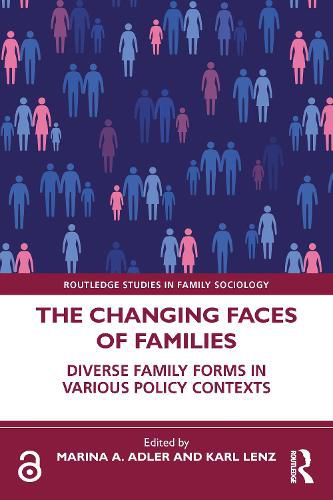Readings Newsletter
Become a Readings Member to make your shopping experience even easier.
Sign in or sign up for free!
You’re not far away from qualifying for FREE standard shipping within Australia
You’ve qualified for FREE standard shipping within Australia
The cart is loading…






With a focus on nine different national contexts, this book explores contemporary family diversity. With attention to the different welfare states and cultures of care in each setting, it problematizes the pre-eminence of research and policy centered on heteronormative families, showing the extent to which family diversity exists cross-nationally in relation to different gendered and "family-friendly" policies. Considering variations in family forms, including differences in the number and marital status of parents, their gender, sexual orientation and biological relationship to the children (adoption), multicultural families, and families created by technological assistance or surrogacy, it presents demographic information, alongside quantitative and qualitative research, across a number of advanced countries. A contribution to our understanding of the diversity of family forms, how diversity is lived in families, and what family diversity means in various international policy contexts. The Changing Faces of Families will appeal to scholars with interests in the sociology of the family.
The Open Access version of this book, available at www.taylorfrancis.com, has been made available under a Creative Commons Attribution-ShareAlike license.
$9.00 standard shipping within Australia
FREE standard shipping within Australia for orders over $100.00
Express & International shipping calculated at checkout
With a focus on nine different national contexts, this book explores contemporary family diversity. With attention to the different welfare states and cultures of care in each setting, it problematizes the pre-eminence of research and policy centered on heteronormative families, showing the extent to which family diversity exists cross-nationally in relation to different gendered and "family-friendly" policies. Considering variations in family forms, including differences in the number and marital status of parents, their gender, sexual orientation and biological relationship to the children (adoption), multicultural families, and families created by technological assistance or surrogacy, it presents demographic information, alongside quantitative and qualitative research, across a number of advanced countries. A contribution to our understanding of the diversity of family forms, how diversity is lived in families, and what family diversity means in various international policy contexts. The Changing Faces of Families will appeal to scholars with interests in the sociology of the family.
The Open Access version of this book, available at www.taylorfrancis.com, has been made available under a Creative Commons Attribution-ShareAlike license.